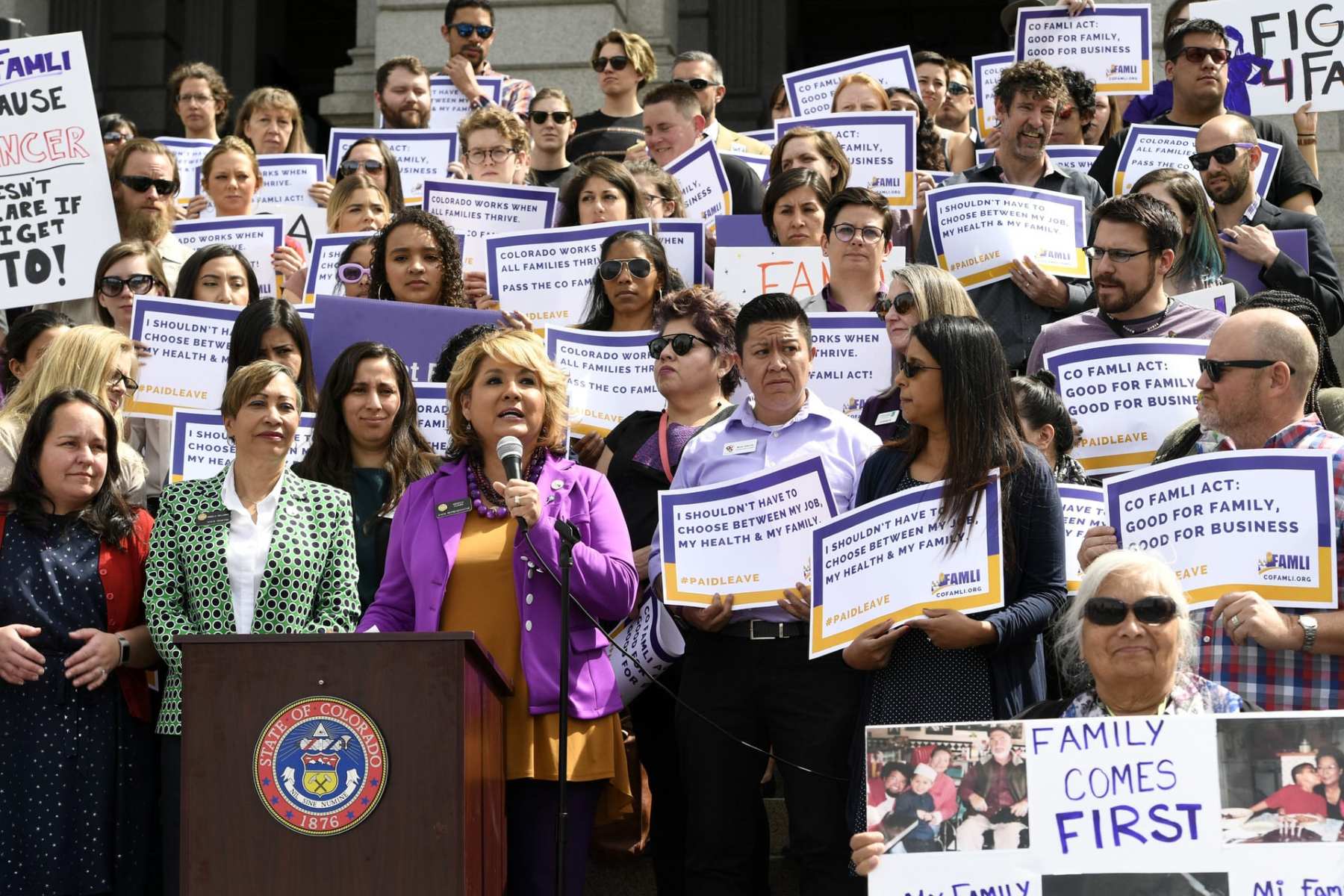We’re the only newsroom dedicated to writing about gender, politics and policy. Subscribe to our newsletter today.
In a win for working families, Colorado voters on Tuesday approved paid medical and family leave in the state, and voters in the Portland, Oregon, area approved universal preschool.
Proposition 118 in Colorado will create a fund that allows workers in the state to receive 12 weeks of paid time off to have a baby, receive medical treatment or take care of an ill family member (the time off could extend to 16 weeks in cases of pregnancy or childbirth complications). Employees and employers will begin paying into the fund in 2023, and the benefits will be offered beginning 2024.
Employees and employers will be required to contribute to the fund through a payroll tax, which will allow approved workers to be paid as much as $1,100 per week depending on their pay. According to a state description of the measure, a “family member” is defined as the worker’s child, parent, spouse, domestic partner, grandparent, grandchild, sibling or “any individual with whom the employee has a significant personal bond that is like a family relationship.”
The Colorado Legislature considered legislation to create a paid medical and family leave program but never passed it.
In Oregon, voters in Multnomah County (where Portland, the state’s more populous city, is located) on Tuesday approved a voluntary universal preschool program. Ballot Measure 26-214 will tax high-income residents in order to pay for tuition-free preschool for 3- and 4-year-olds.
Both proposals come at a time when women have shouldered the bulk of child care and family care needs during the coronavirus pandemic. Daycares have warned of massive closures without federal help. In the midst of these challenges, 865,000 of women left the workforce in September.
Eight states and Washington, D.C., have approved legislation to create paid medical and family leave insurance programs since 2002, but there has been an uptick in recent years, according to a tally by the nonpartisan National Conference of State Legislatures. That includes Oregon, which passed its law in 2019.
Universal preschool programs vary in their offerings, according to an analysis by the Education Commission of the States. In a 2018 report, it determined Vermont, Florida and the District of Columbia have universal preschool programs because they have no caps on funding or enrollment for children. Seven other states, including Oklahoma and West Virginia, have “varying levels of universality” in offering preschool. But it also noted that just a handful of states did not provide some form of state funding for preschool.







